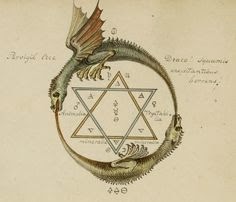Philosophical Imaginatrix: Isha Upanishad
ॐ पूर्णमदः पूर्णमिदं पूर्णात्पुर्णमुदच्यते
पूर्णश्य पूर्णमादाय पूर्णमेवावशिष्यते ॥
Isha Upanishad is the final chapter of Shukla Yajurveda. And is one of the smallest upanishad. Though small, it is one of the most profound upanishad.
Isha Upanishad focuses on the philosophy of Advaita (non duality). It proclaims that all is brahman. What was, is and would be, is nothing but the brahman. Isha upanishad is almost like Bhagavad Geeta. For example, Isha Upanishad has 18 verses and Bhagavad Geeta has 18 chapters. We can look at the Isha Upanishad as the parallel of Bhagavad Geeta. Isha Upanishad summarizes the purpose and importance of human life.
Upanishad in general dives into the aspect of human attitude. It shows how we should live with the understanding of the brahman. And with that we must meet the ends of our action. We must fulfill our duty with selfless performance. This is key for human liberation.
Isha Upanishad is simply saying accept the wholeness. The liberation of human life is not on perfection but on wholeness. To be whole is to be complete and in synchronization with the existence. A sense of perfection is a ego thing, and wholeness is beyond ego. This is where the understanding of renunciation comes. One is not renouncing from life, but from the likes of ego. Renunciation is not negation of life, but living life completely with wisdom.
Isha Upanishad makes it clear that life has to be enjoyed and accepted, without struggling or coveting toward a goal. Goal is achieved when we go with the flow of life. The flow concept is similar to Stoic philosophy that we discussed yesterday when we discussed about Enchiridion. Its also similar to the concept of Tao. The concept of movement. The concept of way rather than the destination.
Our self is the enemy and friend of the self. We contain in us the demonic qualities. These qualities are what makes us wicked. And we involve ourselves in wrong doings. The wrong doings is not just to others but to our self. We do wrong to our self. We must be aware and not involve in such wickedness and focus on moving toward our spiritual progress. Life is not about opposition but co-existence. In co-existence is the foundation of creation. Where divinity (the brahman) is the real doer behind all and none, where he is actively inactive and inactively active. That is the drama of life on Earth.
Everything in the universe is 'I'. Just like the Kabbalistic understanding of 'I am, that I am'. 'You' is an illusion. All is I. You is the maya/illusion which is in our consciousness. The universal consciousness is united and one, and is just 'I'. Experience, experiencer, experiencing, and experienced is all but ONE. The universal consciousness has no motive, no process and no time. It just is. It's is'ing the is.
One should live in the world with the constituents of You's but with the understanding of 'I'. Suffering comes when one sees the self as separate from other. Once one sees that all is one self no suffering exists. Diversity comes from one root and to not know this is the root of all ignorance. Life is a balance between being and non being. The self is both being and non being. It has both, and it moves in both direction. Osho says, "look again – look again into your own being, into your own existence, and you are in for a great surprise." Once we start our true seeking, true understanding we are up for a great surprise. A beautiful miracle of understanding.
So long as man believes himself to be separate from the Whole, he is helpless; but when he identifies himself with It, then he transcends all weakness and partakes of Its omnipotent qualities. -Swami Parmananda
Some key sayings from Isha Upanishad:
1.He who knows these two – the Unmanifested and Destruction – together, attains immortality through the Unmanifested by crossing death through Destruction.
2. O Thou, who art the nourisher, the solitary traveller, the controller, the acquirer, the son of Prajapati, do remove Thy rays, do gather up thy dazzle. I shall behold that form of Thine, which is the most benign. I am that very person that is yonder (in the sun).
3. O Fire! O God! Knowing as Thou doest all our deeds, lead us by the good path for the enjoyment of the fruits of our deeds; remove us from all crooked sins. We offer Thee many words of Salutation!



Comments